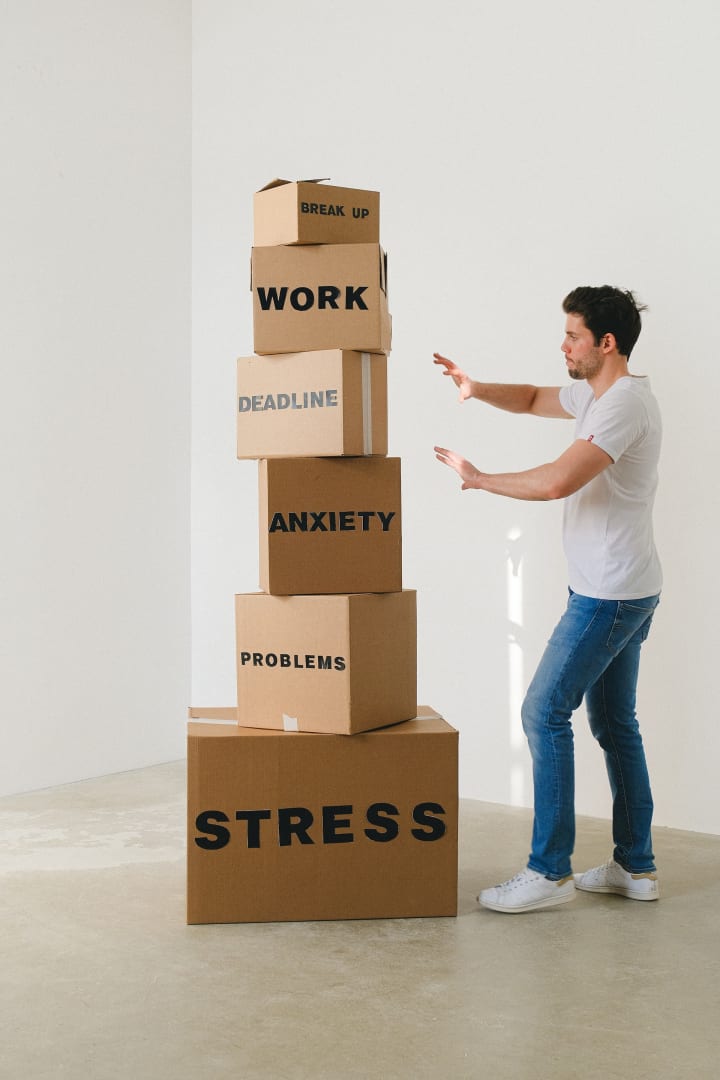
Stress is an inevitable part of life that can have a powerful influence on our daily lives. It can be caused by various factors, such as work, relationships, financial worries, or physical health issues. When left unmanaged, stress can lead to serious physical and mental health problems and can disrupt daily activities. Fortunately, there are many strategies that can be used to manage stress effectively. Here are some tips for effective stress management.
1. Prioritize
One of the most effective ways to manage stress is to prioritize your daily tasks. Take the time to determine what is most essential in your life and focus on completing those tasks first. This will help you stay organized and prevent unnecessary stress due to time constraints. It's important to remember that not everything on your to-do list is equally important. Prioritizing your tasks can help you feel more in control of your time, and prevent stress from creeping in.
2. Exercise
Exercise is a great way to relieve tension, boost endorphins, and distract yourself from stressful thoughts. Whether it's taking a brisk walk around the block or going for a jog around your neighborhood, dedicating at least 30 minutes each day to physical activity can make a significant difference in managing stress. Regular exercise has been shown to lower cortisol levels and boost mood. Furthermore, physical activity can help you take your mind off your worries, and give you a chance to focus on the present moment.
3. Relax
Taking some time throughout the day to relax and unwind can also be effective in managing stress. You can try activities like yoga, meditation, or deep breathing exercises – anything that helps you let go of negative emotions or thoughts. These relaxation techniques can help you calm your mind and relax your body. They can also help lower your heart rate and blood pressure, which can be helpful for managing the physical symptoms of stress.
4. Connect with people
Spending quality time with family and friends who make you feel good is an essential part of managing stress levels. Connecting with loved ones through conversations, shared experiences or even helping them out in times of need can provide the necessary relief from stressful situations. Social support has been found to be a significant factor in managing stress levels. By sharing your feelings with others, you can gain new perspectives, and find new ways of managing stress.
5. Practice Positive Self-Talk
Another great way to manage stress is to practice positive self-talk. Remind yourself that you are capable of overcoming any challenges that come your way and use affirmations to boost your confidence and motivate yourself. Positive self-talk can help improve your outlook on difficult situations and can make it easier to take action and move forward. By reminding yourself of your abilities, you can stay motivated and focused, even during tough times.
6. Use Stress-Relieving Techniques
There are many techniques that can be used to manage stress, and not all of them work for everyone. Some people find that taking a warm bath, listening to music, or reading a book can help them relax and reduce stress levels. Others might prefer aromatherapy or acupuncture to manage stress. Additionally, there are various natural supplements available, such as CBD products, that can help reduce stress and promote relaxation. It's important to find the stress-relieving techniques that work best for you, and incorporate them into your daily routine.
7. Get Enough Sleep
Getting enough sleep is critical for managing stress levels. Lack of sleep can lead to increased stress and anxiety levels, and can also negatively impact your physical health. It's important to establish a consistent sleep routine that allows you to get the recommended seven to eight hours of sleep per night. You can create a bedtime routine that includes relaxation techniques, such as reading or taking a warm bath, to help you

Summary
Stress is an inevitable part of life, and when left unmanaged, it can lead to serious physical and mental health problems. The body's natural response to long-term stress is the "fight or flight" reaction, which releases hormones such as cortisol and adrenaline that can cause health issues if exposed to them for long periods. It is important to identify the sources of stress in your life and take steps to manage them before they become too overwhelming. There are various strategies for effective stress management, including prioritizing tasks, exercising, relaxation techniques, connecting with loved ones, and practicing positive self-talk. By following these strategies, you can start feeling more relaxed and be better prepared to tackle whatever comes your way.
#stress #stressmanagement #relax #mindrelax #happy #stressfree #stayfree
About the Creator
Olivia
Welcome to my Vocan media account! As a writer and freelancer, I share health and beauty tips, insightful articles, and valuable knowledge to make life easier. Check out my blog at panda95hub.blogspot.com for more content.






Comments
There are no comments for this story
Be the first to respond and start the conversation.